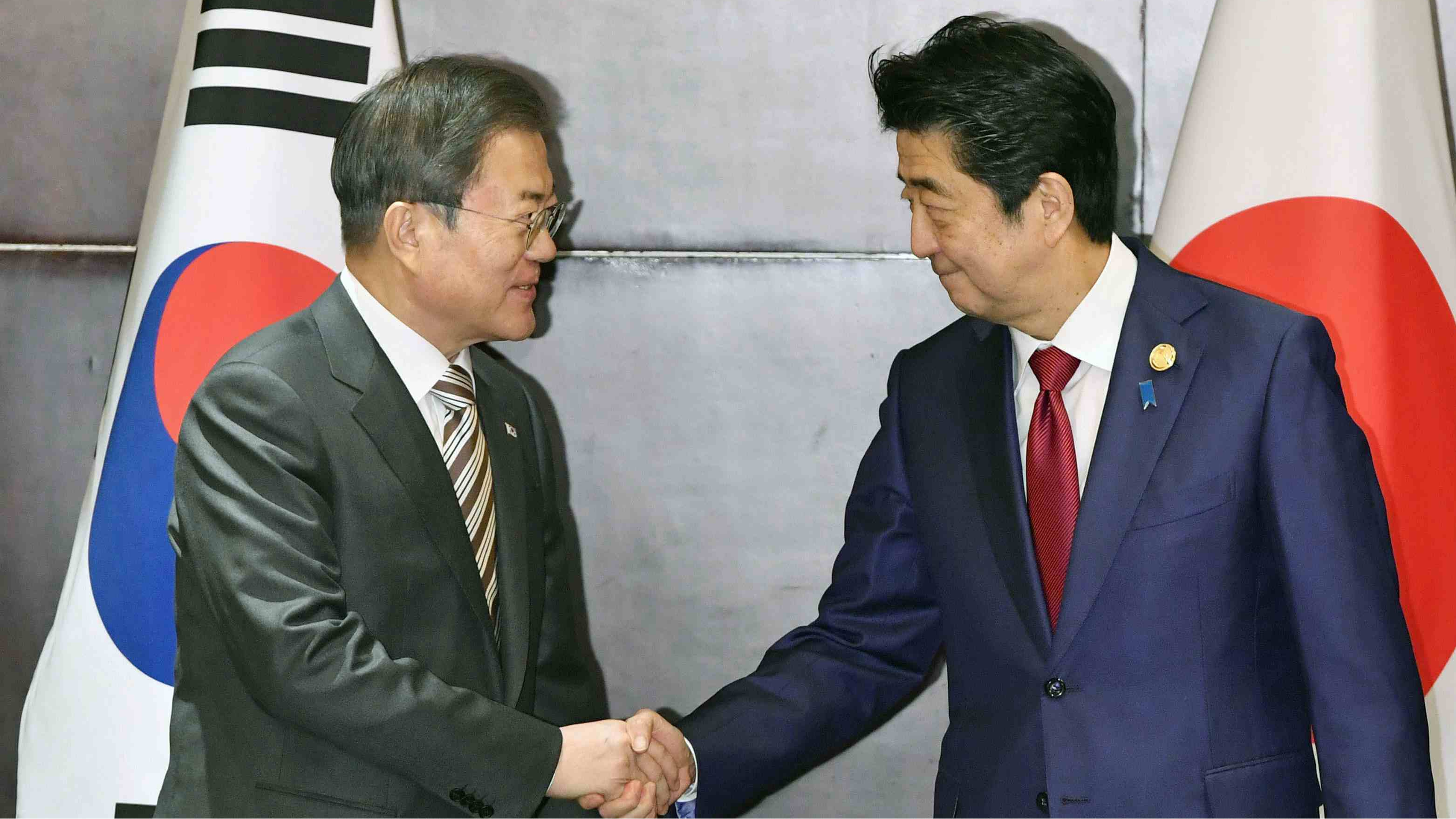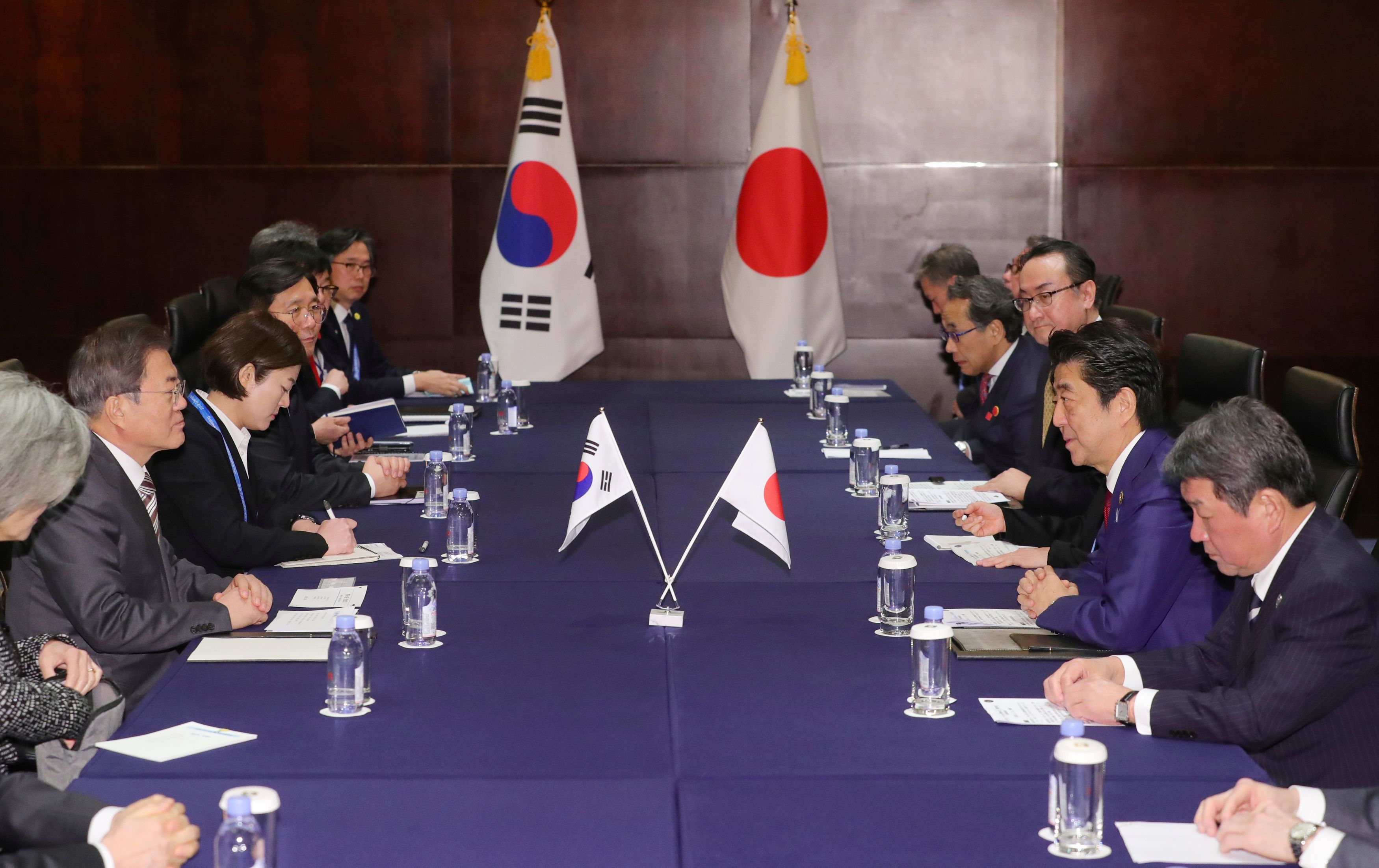
Japanese Prime Minister Shinzo Abe (R) shakes hands with ROK President Moon Jae-in during their meeting in Chengdu, China, December 24, 2019. /Reuters Photo
Japanese Prime Minister Shinzo Abe (R) shakes hands with ROK President Moon Jae-in during their meeting in Chengdu, China, December 24, 2019. /Reuters Photo
President of the Republic of Korea (ROK) Moon Jae-in and Japanese Prime Minister Shinzo Abe on Tuesday confirmed their differences on the wartime labor issue but agreed to resolve the dispute via dialogue, Yonhap reported citing ROK's Blue House.
The pair met for about 45 minutes in the southwestern Chinese city of Chengdu on the sidelines of China-ROK-Japan trilateral meeting.
Moon expressed hopes for an early resolution of their differences. "Japan and South Korea (ROK) are historically and culturally the closest neighbors," Moon said. "We're not in a relationship that can set the two apart even when there's some discomfort for a while."
Read more: Premier Li urges denuclearization of Korean Peninsula

Japanese Prime Minister Shinzo Abe and ROK President Moon Jae-in attend a meeting in Chengdu, China, December 24, 2019. /Reuters Photo
Japanese Prime Minister Shinzo Abe and ROK President Moon Jae-in attend a meeting in Chengdu, China, December 24, 2019. /Reuters Photo
The two leaders had "candid" discussion on recognizing the importance of dialogue despite "substantive differences," said Japan's Deputy Chief Cabinet Secretary Naoki Okada. He said the mood was tense at times but not confrontational.
Abe said at a press conference that he has relayed Japan's position on wartime labor issue to President Moon, adding it is ROK's responsibility to come up with measures that would resolve wartime labor issue.
Ties between Japan and the ROK, two of the United States' major Asian allies, have plunged to their lowest in decades after ROK's top court last year ordered Japanese firms to compensate some wartime forced laborers.
Japan said the issue was settled under a 1965 treaty and that the court ruling violated international law.
On trade
Speaking of trade, Moon called on Abe to withdraw all of Tokyo's export curbs against Seoul during their meeting, reported Yonhap.
Moon stressed that Japan should return to the situation before July 1, when Tokyo toughened its export control of three kinds of major industrial materials, and suggested speedy working-level consultations on the trade matter.
On DPRK
Moon and Abe also mentioned the issue of the Democratic People's Republic of Korea (DPRK). They both urged the resumption of talks between Pyongyang and Washington, which have been largely deadlocked since a second summit between U.S. President Donald Trump and DPRK leader Kim Jong Un in Hanoi collapsed at the start of this year.
"It is important that we give our utmost support to the U.S.-North Korea (DPRK) process toward complete denuclearization of North Korea (DPRK)," said Abe at the press conference.
He said Japan, China and the ROK agreed that the DPRK should refrain from provocations.
(With input from Reuters)